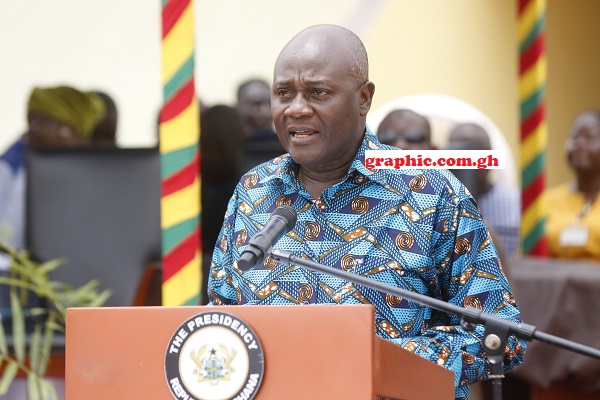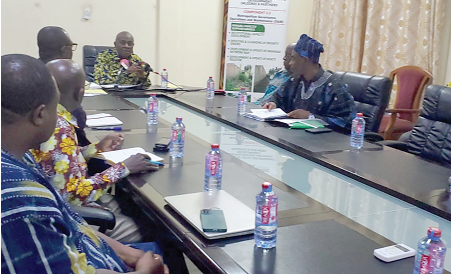
Flood control: Govt disburses GH¢7m to assemblies along Odaw River
The government through the Ministry of Local Government, Decentralisation and Rural Development (MLGDRD) has disbursed GH¢7.16 million to 17 metropolitan and municipal assemblies along the Odaw River to help control floods this year.
Advertisement
The funds, which were provided under the Greater Accra Resilient and Integrated Development (GARID) Project as part of a $200 million World Bank credit (loan) facility, will support the beneficiary assemblies to improve the operation and maintenance of drainage and solid waste management infrastructure in communities along the Odaw channel for this year’s major rainy season.
The project also aims at providing services and infrastructure in priority flood-prone informal settlements within the Odaw basin.
The Minister of Local Government, Decentralisation and Rural Development, Dan Botwe, announced this at a stakeholder meeting in Accra yesterday to improve governance, operation and maintenance of drainage infrastructure in the beneficiary assemblies.
They are Accra Metropolitan Assembly, Ablekuma Central, North, and West Municipal Assemblies; Adentan Municipal Assembly, Ayawaso Central, East, North, and West Municipal Assemblies; Ga Central, East, North, and West Municipal Assemblies; La Dade Kotopon Municipal Assembly, La-Nkwantanang Madina Municipal Assembly, Okaikoi North Municipal Assembly, and Korle-Klottey Municipal Assembly.

Dan Botwe (middle), Minister of Local Government, Decentralisation and Rural Development, addressing the participants in the meeting
Flashback
Last year, GH¢3,746,800 was disbursed to the beneficiary assemblies for the same goals. Under the project, compactor trucks and other waste collection equipment were distributed to the beneficiary metropolitann and municipal assemblies to support their waste management activities.
It is expected that the assemblies would use their allocation of this year’s grant and the equipment they received to desilt choked drains, evacuate refuse that are in watercourses and carry out other drainage operations and maintenance activities that will bring relief to the citizenry in the flood-prone communities along the river basin.
Warning, additional responsibility
Mr Botwe said the beneficiary assemblies were equally expected to use an additional 20 per cent of their respective Internally Generated Funds (IGF) to complement the grant given them.
He warned that sanctions would be imposed including naming and shaming the beneficiary assemblies that performed poorly last year, stressing that by March 29, 2023 the ministry would require some answers from the assemblies regarding their poor delivery.
Mr Botwe pointed out that every beneficiary assembly must have a drainage plan and strictly adhere to it to enable them to access the grant, stressing that “failure to do basic paperworks and poor performance will result in the assemblies getting less money and so when it rains people suffer”.
He, therefore, encouraged residents in the beneficiary communities to demand accountability from duty-bearers in their respective localities because it was their right to do so.
He said GARID was an inter-ministerial project being implemented by the MLGDRD, Works and Housing, Sanitation and Water Resources.
GARID, early warning
Giving on overview of the GARID Project, its Coordinator, Dr Kwadwo Ohene Sarfoh, said besides desilting of priority drains, some of the grant resources would be channelled into institutional development, including condition assessments of the drains in the flooding hotspots, support to the drainage maintenance units, procurement of logistics, and training.
He announced plans under the project to provide an early warning flood centre in Accra as soon as approval is given by the end of April. Furthermore, when approval is given, a service provider will be engaged to install equipment, operate and transfer the centre.
Dr Sarfoh said when operational, the Ghana Meteorological Agency, Ghana Hydrological Authority and the National Disaster Management Organisation (NADMO) would be fully equipped to help give specific alerts and better predictability of communities, river basins and drains that were likely to be flooded.
“During the 2015 floods, for example, the damage was assessed to be $50 million and then the cost of repair was estimated to be around $100 million and so if we can avert such a damage, it helps save everybody not only economic losses but also emotional and psychological pain that is associated with such losses," he stressed.




